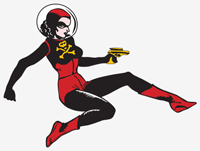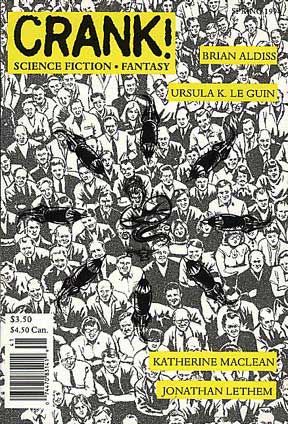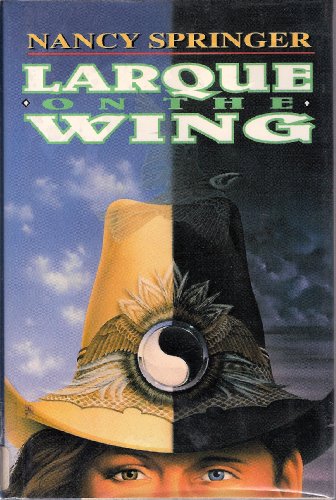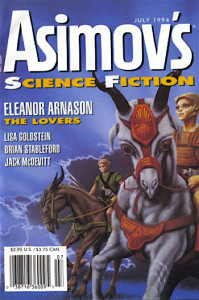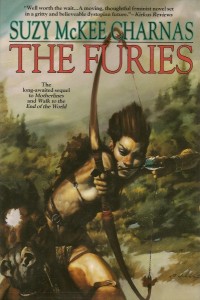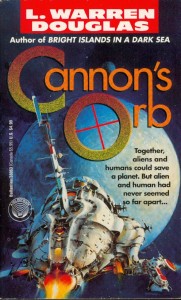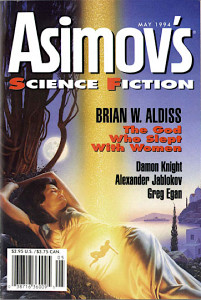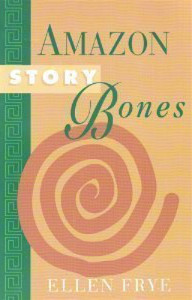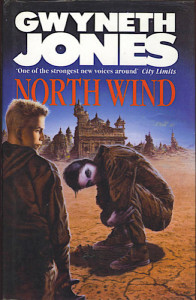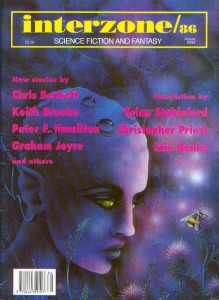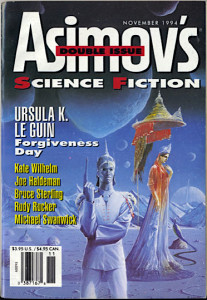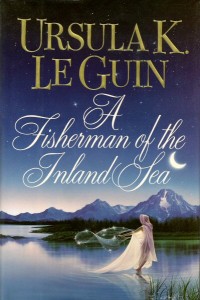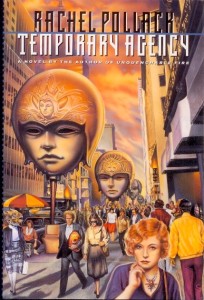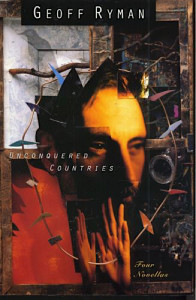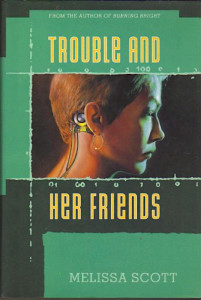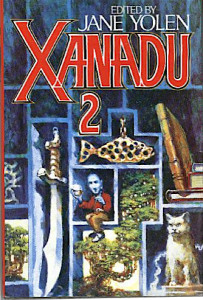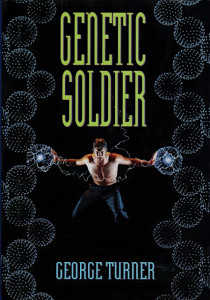The Otherwise Award is pleased to announce that the award ceremony for the 1994 Otherwise Award winner(s) has been held, and the winners have received their award and accolades.
Award Information
Conference Information
- Award Year: 1994
- Award Year Number: Year 4
- Conference: Potlatch 4
- Date: 12-02-1995
- Location: Berkeley, CA
Award Winners
The 1994 jury chose 2 works for the Otherwise Award.
“The Matter of Seggri” is a story that is bigger than it looks. Within its thirty-some pages the world of Seggri is discovered, explored, and altered. Half a dozen distinct and memorable storytelling voices give us comic misunderstandings, tragedies enacted and averted, histories recounted and dreams revealed, all within the frame of a convincingly strange society. Fourteen hundred years are distilled into a few key moments. One of the ways Le Guin has managed to pack so much into this tale is by making it a gateway-a mental hypertext-to a lot of other stories, including her own explorations of gender and society in The Left Hand of Darkness and A Fisherman of the Inland Sea as well as the thought experiments of other gender explorers like Joanna Russ, Eleanor Arnason, Sheri S. Tepper, and James Tiptree Jr. The world of Seggri invites comparison with Gethen and Whileaway and Women’s Country without being an imitation or a simple answer to any of them, just as it invites comparison with aspects of our own world without being reducible to an allegory or a simple inversion of existing gender roles. Whereas Larque on the Wing. uses the machinery of fantasy to get at the inner experience of gender, “The Matter of Seggri” uses science fiction to map out social implications. It asks how gender enters into institutions like schools and marriages and how it might do so differently. It asks how power and love and justice might be redistributed along gender lines, and what the effect might be on individual lives. It asks what stake society has in enforcing models of femininity and masculinity and what happens to those who fail to follow the template. Most remarkably, Le Guin makes us care about the people we meet: First Observer Merriment and her never-seen partner Kaza Agad, young Ittu and his sister Po, even the fictional-within-a-fiction lovers Azak and Toddra and Zedr. In the few pages each gets on the scene, we recognize their uniqueness even as we learn the social patterns of which they are a part. They make the Matter of Seggri matter. — Brian Attebery It could be a how-to manual on how to explore gender issues through the use of science fiction. — Ellen Kushner A short story perfect in its parts as a snowflake, or Chekhov’s “Lady with a Little Dog.” This is the first time the Tiptree has been awarded to a work of short fiction, and “Seggri” proves that explorations of gender can be as efficient pithy as lengthy. — Lucy Sussex This deals with gender issues in a way that only science fiction can: by creating a society that has different assumptions than ours, thus forcing us to examine our own. It makes stunning use of different viewpoints to give us an understanding of the society that we couldn’t obtain any other way. Fascinating for its anthropological detail, “The Matter of Seggri” shows the emotional and societal consequences of a different social organization, and the consequences of changing or disrupting that organization. — Pat Murphy Just when I was beginning to fear that no work of short fiction could stand up to the powerhouse novels contending for the Tiptree-along came “Seggri.” On Seggri, women far outnumber the men, an imbalance that, notes one Hainish observer, “has produced a society in which, as far as I can tell, the men have all the privilege and the women have all the power.” Men and boys over the age of 11 live in hierarchically organized “castles.” They gain glory by competing in games, cheered on by the women; the women do all the productive and political work of the society, and the two genders meet only in the “fuckeries.” The women may enjoy sex with men, but naturally they form their primary erotic and social bonds with other women. Both the society and the story are complex, covering several generations and told from various viewpoints. Though undeniably different from our own society, Seggri eerily echoes it, and like several of this year’s shortlisted works-notably Arnason’s “The Lovers” and Charnas’s The Furies-the focus is on those who, by asking questions and/or not fitting in, become harbingers of change. — Susanna J. Sturgis This story is in Flying Cups and Saucers. When is a middle-aged woman not a middle-aged woman? When she’s a ten-year-old girl and a young gay man. In Nancy Springer’s Larque on the Wing, the main character unintentionally releases her grim and grubby child self as part of a mid-life crisis. Her young doppelganger leads her to a place called Popular Street, which is both gay ghetto and enchanted land. There she is transformed from frumpy Larque to handsome Lark, who was, it seems, always there inside. Lark can have the adventures Larque has denied herself: can explore the dangerous night world, wear cowboy boots, beat up homophobic thugs, act on erotic impulses (gay because Larque is attracted to men). As engaging as Larque (and her husband Hoot) may be, what sticks in the mind from the novel is Popular Street. Cheerfully sleazy and genuinely magical, Popular Street manifests unpredictably wherever the forces of order aren’t paying attention. It is a place of desires and of truths, both of a sort that conventional society covers over. On Popular Street, features of homosexual subcultures-the lure of the forbidden and the secret, irreverence toward middle-class values, acknowledgment of the varieties of pleasure, a sense that gender identity is something that can be put together and tried on like a costume-become the basis for a powerful and transforming enchantment. What fantasy does best is to take the insides of things and express them as outsides. An ent is the inside of a tree, a beast is the inside of a prince (and vice versa). Nancy Springer has used this property of fantasy to get inside gender and sexuality. She shows that the inside of intolerance is fear, the inside of art is truth-telling, and the inside of a woman is a whole cast of characters of all ages and genders. — Brian Attebery Playful and outrageous, this book taps into some of our less-admissible and more potent fantasies! — Ellen Kushner Gender is 90 percent of comedy, but seldom does the comedy step outside traditional sex roles. Larque is the exception, managing to be simultaneously challenging, disturbingly so at times, and hilarious. — Lucy Sussex Springer’s novel considers the startling, funny, indescribable adventures of Larque, a middle-aged woman whose mid-life crisis takes on concrete form. A ten-year- old version of Larque (blinked into existence by Larque’s own uncanny abilities) leads Larque into an exploration of her life and the compromises she made while growing up. Along the way, Larque is transformed into Lark, an adolescent boy, and works magic of many kinds. A rollicking, offbeat, thoughtful fable for our time. — Pat Murphy Larque on the Wing was a front-runner from the day I read it, very early in the year. In this wittily, wildly original contemporary fantasy, Nancy Springer expands, explores, and bends more gender conventions than most authors recognize. Most notably, Larque emerges from a makeover session not with a new hairdo but with the body of a 20-year-old gay man. And Springer restores scruffy, nose- wiping vitality to a useful concept turned tedious cliché: the “inner child.” Then there’s Larque’s mother, Florence, who sees what she wants to see-with a vengeance. Larque does have a weak point or two. Larque’s best female friend, Doris, is characterized mostly by her carrot addiction. More significant, and striking in a novel that draws explicit parallels between the Otherness of women and gay men, is the absence of lesbians, from both Popular Street and the ranks of Larque’s inner selves. Lesbian characters, erotic love between women: these are still out on the gender-bending frontier. — Susanna J. SturgisThe Matter of Seggri by Ursula K. Le Guin (Broken Mirrors Press, 1994)
Work Information
Title: The Matter of SeggriAuthor: Ursula K. Le GuinCollection:
Title: Crank! #3 Spring 1994Editor: Bryan CholfinPublisher:
Publisher Name: Broken Mirrors PressCountry: USYear: 1994Larque on the Wing by Nancy Springer (AvoNova, 1994)
Work Information
Title: Larque on the WingAuthor: Nancy SpringerPublisher:
Publisher Name: AvoNovaCountry: USYear: 1994
Award Honor List
See full details about the 1994 Honor List
The 1994 jury chose 14 works for the Honor List Arnason has explored this territory before but finds new insights this time around. The story concerns heterosexual love in a world that allows no such thing. The lovers convincingly embody gender choices that neither their society nor ours is quite prepared to sanction. — Brian Attebery Like Arnason’s other “hwarhath” stories, this poignant tale explores gender on several levels, like a mobile of mirrors that catches new reflections with each turning. Neither Eyes-of- Crystal nor Eh Shawin is a revolutionary, yet their love both grows from and profoundly challenges the deepest assumptions of their society. By incorporating comments about the “author” of the tale, and finally its evidently human translator/editor (who might well be Anna Perez of Ring of Swords), Arnason sketches a broader timescape of a culture in transition. I’m impressed! — Susanna J. Sturgis This story is in Flying Cups and Saucers. Charnas follows up her groundbreaking novels about Free Fems and Riding Women with a dark and challenging story of revenge. The Free Fems have returned to Holdfast in order to tear it down. The question that is never resolved is whether they will be able to make a new life for themselves and the remaining men. Amid uncertainty, bitterness, and betrayal, the heroine of the earlier books struggles to keep the Free Fems from become what they have escaped from. — Brian Attebery The 1994 jury was both blessed and cursed with an abundance of riches. This is a book that not only encourages but forces the reader to question assumptions about gender. It connects the words/ideas “women” and “power” and “violence” in a way few authors have ever cared or managed to. — Ellen Kushner This continuation of Walk and Motherlines is powerful, brooding, and extremely dark. Somebody commented that the two previous novels embodied key moments in the history of feminism; if that is so, then The Furies shows we live in interesting times (in the Chinese sense). It shows women turning on men, then on themselves, but battles in the end towards a type of understanding, if not forgiveness. Very few novels indelibly impress upon the mind, and this is one of them. — Lucy Sussex Like its predecessors, Walk to the End of the World and Motherlines, The Furies explores the consequences, for both women and men, of a violently patriarchal society. Here at last the Riding Women, who have never been either slaves or slave owners, see the Free Fems in the latter’s own context-which is to say that they really see the Free Fems for the first time. There are acts of excruciating violence in this book, men against women, women against men, women against women; such is the power of the writing that I couldn’t look away. The Furies is one of the most important feminist novels I’ve ever read-why then did it place a shade behind the winners of this year’s Tiptree Award? Because its brilliance lies not so much in exploring and expanding gender roles-here The Furies clearly builds on the earlier books-but in asking the unaskable questions about revolutionary change, and in imagining, and facing, the unimaginable answers. What shapes the relationship of liberator and liberated? Leader and led? What to do with the despised but indispensable former oppressor? Langston Hughes asked what happened to a dream deferred; Suzy McKee Charnas asks what happens to a dream on the verge of fulfillment. — Susanna J. Sturgis Like Genetic Soldier, this novel hypothesizes that pheromones control large areas of human behavior that we think are rational. Contact with an alien race has altered human pheromones, with the result that everything from sexual cycles to xenophobia is transformed. The book takes a wrong turn toward the end, but in the interim a lot of assumptions about gender and society are questioned. — Brian Attebery The book begins in an interesting fashion-examining the biological roots of human behavior. But starting from there, the story went in a direction that reinforces our cultures biases in what I consider to be a totally wrong- headed fashion. According to my reading of Canon’s Orb, the biological role of women is to control from behind the scenes by flattering and bolstering the ego of the man they have chosen as the alpha male. Women gain their power by supporting men. It sent chills up my spine-and I mean the wrong kind of chills. Because I had such a visceral reaction to the book, it did force me to examine my beliefs related to gender. — Pat Murphy A frightening, and all too credible account of what might happen if corporate R&D capitalism ever decides to really cash in on homophobia. A scientific thriller par excellence. — Lucy Sussex The opening stories, revised myths from a feminist perspective, seem a little smug, and I don’t believe traditional mythic figures ever talk quite so much. But when it gets to the central narrative, about the fall of Troy and its impact on the lives of Amazons and other women, the book is powerful and convincing. One of the most interesting touches is that the Amazons are never actually there-they’re either anticipated, in the mythic sections, or sought, in the more naturalistic narrative. They’re a possibility that changes the world, rather than an actuality that can be pushed into the margins. — Brian Attebery Who says that history has to be written by the winners? A tantalizing, evocative account of some of the lesser-known losers of the Trojan war, and how their herstory might have been; at its best when rewriting Homer. — Lucy Sussex This book’s Amazons are always off-stage. They are a promise and an inspiration. I like that. — Pat Murphy A fine, not to mention rare, example of what can happen when feminism and fantasy marry. The myths that open the book read like a First Contact tale; familiar gods and heroes are seen through the bemused, benevolent, and often fatally naive eyes of the goddesses they displace. A generation or so after the fall of Troy, a young girl, Iphito, dreams of the near-legendary Amazons and listens to the stories of two old women, one an Amazon herself. This unconventionally structured novel both describes and embodies how storytelling can expand gender roles, especially by sparking the imagination of girls. — Susanna J. Sturgis In this follow-up to the Tiptree-winning White Queen, Gwyneth Jones continues to redivide the gender pie in most interesting ways. There is a war going on between Men and Women-but the Men are not necessarily men. There are also aliens of undoubted sexuality but disputed gender. The narrative itself alternates between masculine and feminine pronouns for one of the main characters, depending on whose perceptions are being echoed. — Brian Attebery A writer friend recently opined, apropos of White Queen that there is more in Gwyneth Jones’ paragraphs than there is in most novels. North Wind is a worthy follow-up to her earlier Tiptree winner, dense with ideas to the extent of almost being too much of a good thing. A fascinating read. — Lucy Sussex A study in demonizing the Other, in this case hermaphrodites. Even the sympathetic hero is implicated in their oppression, until the seemingly innocuous Reecebread of the title solves the problem. — Brian Attebery The narrator, an English police officer in the not-too-distant future who falls in love with a hermaphrodite, tries to steer a course between the violent hatred of his colleagues and what he perceives as the extremism of some hermaphrodites-with predictably tragic results. Like several other works considered by the 1994 jury, this draws elements of Romeo and Juliet, not to mentionGuess Who’s Coming to Dinner? and The Crying Game, into the service of defusing hostility to gender difference. — Susanna J. Sturgis This story is in Flying Cups and Saucers. Like “Young Woman in a Garden,” this novella explores the undermining of the assumptions about class, culture, and gender, dearly held by each protagonist, with immense compassion for both-and, by extension, all the rest of us. I loved the choice of “asset” to describe the slaves/bondspeople; it neatly extends the concept of unfreedom into the so-called free marketplace. — Susanna J. Sturgis This story is in Flying Cups and Saucers. The title story interacts intriguingly with “The Matter of Seggri.” The world of O could not be more different in its sexual arrangements from the strict separation of Seggri. A marriage on O requires two women and two men, each interacting sexually with two of the others-but not with the partner of the same moiety. That would be immoral. This is a story about having it both ways: not only heterosexual and homosexual but also living two different lives, thanks to the paradoxes of Churten physics. — Brian Attebery Just about my favorite part of this collection was the Introduction, “On Not Reading Science Fiction,” in which, with her usual quiet panache, Le Guin nails the use and purpose and intent of science fiction for even the meanest intelligence to perceive. — Ellen Kushner Though I enjoyed all of the stories in this collection, I recommend it for the shortlist because of one story in particular: “Another Story.” Le Guin is second to none in imagining interesting cultures. The culture in “Another Story” has marriage customs that, quietly and matter-of- factly, stand our assumptions on their ear. — Pat Murphy “Another Story, or A Fisherman of the Inland Sea,” the only 1994 story in this collection, “only” redefines family and provides a scenario whereby one really can, in certain circumstances, go home again. Clearly a shortlist contender in its own right, it’s ably amplified by its impressive company here. Read, or reread, “Newton’s Sleep,” in which what one doesn’t see refuses to go away”; “The Rock That Changed Things”; and especially “Dancing to Ganam.” Reality, said Lily Tomlin’s Trudy, is “nothing but a collective hunch;” Ursula Le Guin shows how it works. — Susanna J. Sturgis I liked about this book for its matter-of-fact use of demons and magic in an otherwise contemporary world. As for the book’s gender-bending credentials-Ellen, the main character, is a strong-minded, capable, heroic young woman (she’s a teenager at the start and an adult by the end), she ends up in a relationship with another woman; a group of transgender hackers assists her in her work. And (here’s the big one for me) in the end, Ellen and her lover, using limited resources and their wits, save the world. I’m always so happy when women save the world. — Pat Murphy There is virtually nothing Geoff Ryman writes that does not explore gender or sexuality; his hand is so steady on that wheel that he can steer the vessel off in completely other directions, and still have more to say on gender than do many stories that use it as their focal point. While other writers struggle with questions of, “Gosh, can women be strong and nontraditional, and men complex and conflicted, and how can I show it …?” Ryman’s assumption is that they not only can be but already are; he begins there, and takes the work where he wants it to go. This collection is notable for his 1994 story “A Fall of Angels, or On the Possibility of Life under Extreme Conditions.” — Ellen Kushner I’d recommend this for the shortlist because “O Happy Day!,” one of the four novellas it includes, is a powerful examination of the consequences of gender and power and violence. In this world run by women, a group of gay men are the cleanup crew in a concentration camp where heterosexual men are exterminated. The story takes place in a concentration camp It’s a powerful and gripping story, one that I find impossible to ignore. — Pat Murphy Wild grrls invade the cyberpunk boys’ club. Trouble and her friends are virtual amazons, at home inside the virtual world and outside the law. The story includes a lot of weird hardware, an on-line cross-dressing seducer, and a genuine love story between prickly Trouble and independent Cerise. — Brian Attebery Lesbian relationships in F/SF, still lamentably scarce, tend to take place either on the peripheries of the main story or in societies-like those of last year’s winner, Ammonite-where there are no men. Had Melissa Scott done no more than put Trouble and Cerise front and center in a near-future U.S., this novel would be worth celebrating. But Scott goes much further, exploring the challenges to and implications of unconventional relationships in a vivid social context. She uses the gender ambiguity of the virtual world to play an erotic joke on one of her protagonists, and to have fun with a U.S. mythos that generally excludes women: the Wild Wild Western. Perhaps most important, she examines with compassion and insight the slow recovery of a partnership from desertion and betrayal. — Susanna J. Sturgis Delia Sherman delicately undercuts assumptions about gender and art with this time fantasy about an artist, a lover, a model, and a scholar, none of whom are exactly the person one expects. — Brian Attebery A lovely, haunting story that puts gender considerations in an intriguing historic perspective. — Pat Murphy A young American graduate student finds more than a dissertation topic in this beautifully written story. True to its central imagery, the tale is about learning how to see what lies in plain sight, and here the “what” has much to do with assumptions about gender and sexuality, not to mention the complex relationship of artist/scholar and subject. — Susanna J. Sturgis This story is in Flying Cups and Saucers. In the future Earth of this book, social roles are predestined by genes and enforced by pheromones. Some are mothers, some are soldiers. Turner combines social and biological extrapolation to produce a very strange world that is at the same time a mirror of our own. — Brian Attebery The influence of pheronomes on sex roles has been explored recently in SF, but seldom with the narrative edge of Turner. A fascinating exploration that rewrites the theme of star-crossed lovers most nastily and inventively. If anything, this is a metaphysical thriller, with gender ultimately transcended. — Lucy SussexThe Lovers, Eleanor Arnason (Bantam Doubleday Dell Magazines, US, 1993)
The Furies, Holdfast Chronicles Book 3, Suzy McKee Charnas (Tor, US, 1994)
Cannon's Orb, Phastillan Book 2, L. Warren Douglas (Del Rey / Ballantine, US, 1994)
Cocoon, Greg Egan (Bantam Doubleday Dell Magazines, US, 1994)
Amazon Story Bones, Ellen Frye (ed.) (Spinsters Ink, US, 1994)
North Wind, The Aleutian Trilogy Book 2, Gwyneth Jones (Gollancz, UK, 1994)
Eat Reecebread, Graham Joyce, Peter F. Hamilton (David Pringle, UK, 1994)
Forgiveness Day, Ursula K. Le Guin (Bantam Doubleday Dell Magazines, US, 1994)
A Fisherman of the Inland Sea, Ursula K. Le Guin (HarperPrism, US, 1994)
Temporary Agency, Unquenchable Fire Book 2, Rachel Pollack (St. Martin's Press, US, 1994)
Unconquered Countries: Four Novellas, Geoff Ryman (St. Martin's Press, US, 1994)
Trouble and Her Friends, Melissa Scott (Tor, US, 1994)
Young Woman in a Garden, Delia Sherman (Tor, US, 1994)
Genetic Soldier, George Turner (AvoNova / William Morrow, US, 1994)
Award Long List
See full details about the 1994 Long List
The 1994 jury chose 26 works for the Long List
- Stardust Bound, Karen Cadora (Firebrand Books, US, 1994)
- The Warrior's Tale, Anteros / Far Kingdoms Book 2, Allan Cole, Chris Bunch (Del Rey / Ballantine, US, 1994)
- Somnus's Fair Maid, Ann Downer (AvoNova / William Morrow, US, 1994)
- Earthsong, Native Tongue Book 3, Suzette Haden Elgin (DAW Books, US, 1994)
- One Last Zoom at the Buzz Bar, Alison M. Goodman (Omnibus Books / Ashton Scholastic Group, Australia, 1994)
- Stranger at the Wedding, The Windrose Chronicles Book 5, Barbara Hambly (Del Rey / Ballantine, US, 1994)
- The Valley of the Humans, Phillip C. Jennings (Bantam Doubleday Dell Magazines, US, 1994)
- Big Guy, James Patrick Kelly (Bantam Doubleday Dell Magazines, US, 1994)
- Wildlife, James Patrick Kelly (Tor, US, 1994)
- Amazons, Severna Park (Spalding University, US, 1994)
- Rat, Mary Rosenblum (Bantam Doubleday Dell Magazines, US, 1994)
- Heartstone and Saber, Jacqui Singleton (Rising Tide Press, US, 1994)
- A College of Magics, A College of Magics Book 1, Caroline Stevermer (Tor, US, 1994)
Jurors
Commentary was harvested from correspondence among the judges and attributed by the judges’ names.
- Susanna J. Sturgis (chair)
- Pat Murphy
- Lucy Sussex
- Ellen Kushner
- Brian Attebery
Award Ceremony
See full details about the 1994 Ceremony
The 1994 Otherwise Award was given to Ursula K. Le Guin and Nancy Springer at Potlatch 4, February 02, 1995, in Berkeley, California.
